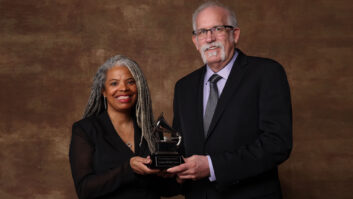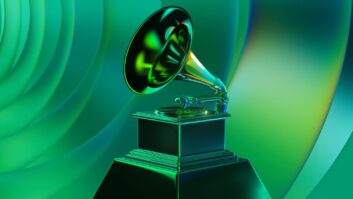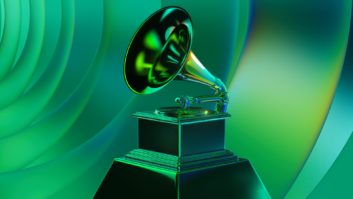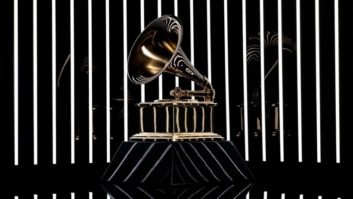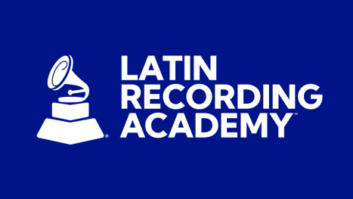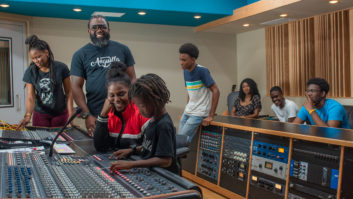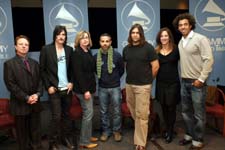
From L-R: Michael Molenda, Butch Walker, P&E Wing Executive Director Maureen Droney, Carmen Rizzo, Nick Raskulinecz, Lizzy Moore (West Regional Director of The Recording Academy) and Harvey Mason Jr. Photo courtesy of The Recording Academy; photo by: Maury Phillips/WireImage.com ©2007
The Producers & Engineers Wing of The Recording Academy, the organization that produces the Grammy Awards, held its 14th annual Grammy Producers SoundTable on January 20, 2007 at the Anaheim Marriott Hotel during the 2007 Winter NAMM show. This year’s SoundTable was titled “What’s In Your Rack? Top Music Producers Sound Off On How We Work Today.” It featured panelists Harvey Mason Jr. of the production/songwriting team The Underdogs (Dreamgirls, Ruben Studdard, Aretha Franklin); engineer/producer Nick Raskulinecz (Foo Fighters, Queens Of The Stone Age, Mars Volta); artist/producer/remixer Carmen Rizzo (Coldplay, Seal, Pete Townshend); and artist/producer/engineer Butch Walker (Pink, Avril Lavigne, Butch Walker and the Let’s-Go-Out-Tonites). Guitar Player magazine editor in chief Michael Molenda moderated the panel.
“What’s In Your Rack” examined the diversity of modern recording techniques. Raskulinecz remains a devotee of the conventional studio as creative and technical hub. “Making a record is like a camping trip, where you’ve got a bunch of people hanging out together all the time,” he said. “And we huddle around the console the way you hang out around the campfire.”
On the other hand, two-time Grammy nominee Rizzo underscored his strong interest in electronica and computer-based recording. “I hate studios,” he said. “I like to record everywhere but a studio, and a laptop loaded with Pro Tools is my best friend.” Rizzo, who was a key figure in pushing for the new Best Electronic/Dance Album category, described a variety of non-traditional studio situations that he’s recorded in, including working with Pete Townshend on a barge in the UK on the River Thames. He pointed out that the power of new recording software meant that recording on the go offered a unique experience without compromising professional-level sound quality.
Walker reflected the middle ground. “It’s not about finding the perfect sound, but finding the right vibe,” he said, adding that the overall emotional power of a song and its performance is more important than capturing “perfect” tracks. “The sound of a kick drum won’t change someone’s life.”
Attendees enjoyed a spirited discussion of favorite microphones, compressors, effects units and software, and frequently spoke of the rewards of pushing technology to its limits in order to get unusual, ear-catching sounds. Toward the end of the SoundTable, the panelists happily fielded questions from the audience, dispensing advice on such topics as the proper way to lay in backing vocals, the trick to getting bass and kick drum tracks to groove together, and the importance of mastering. But all the panelists echoed the idea that whatever the recording situation or set-up, an ear for artistry has to trump any concerns with technology. “It’s easy to get so distracted by technology that you lose sight of the song,” Raskulinecz said.
For more information, visit www.grammy.com/Recording_Academy/Producers_and_Engineers.
